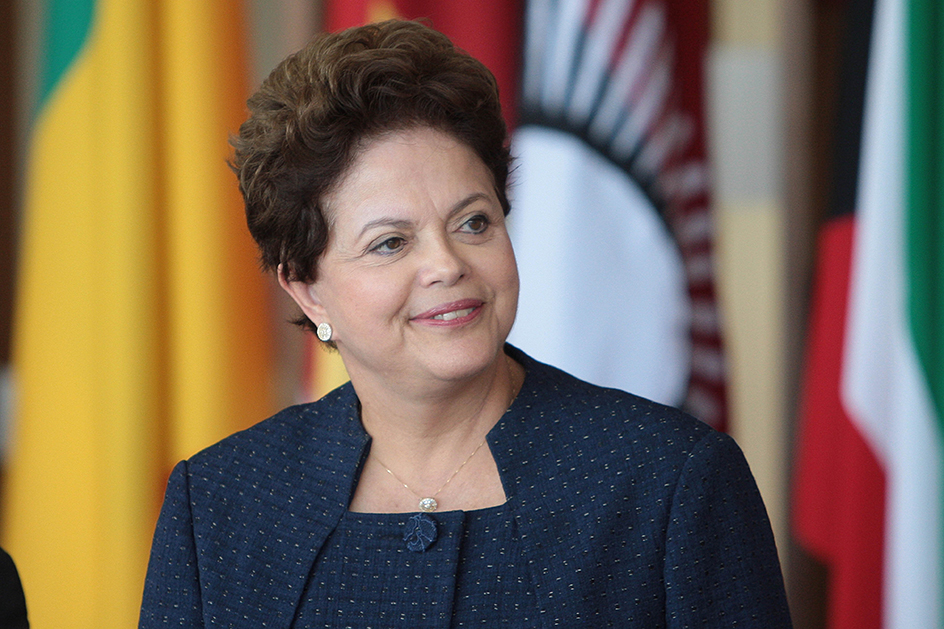Rousseff, Dilma << ROO sehf, JEEL mah >> (1947-…), was president of Brazil from 2011 to 2016. She was the first woman to hold that office. Prior to becoming president, she was chief of staff under President Luis Inácio Lula da Silva from 2005 to 2010. She served as Brazil’s minister of mines and energy from 2003 to 2005. Rousseff belongs to the liberal Workers’ Party.

Dilma Vana Rousseff was born on Dec. 14, 1947, in Belo Horizonte, Brazil. Her mother was Brazilian, and her father was a Bulgarian immigrant. Rousseff studied economics at the Federal University of Minas Gerais. As a student, she joined the opposition to the military government that had come to power in Brazil in 1964. Her antigovernment activities and association with armed rebel groups led to her arrest in 1970. Rousseff was imprisoned for nearly three years and tortured. Following her release, she returned to college. She received a B.A. degree in economics from the Federal University of Rio Grande do Sul in 1977. She also studied economics as a graduate student at the State University of Campinas.
Democratic government returned to Brazil in the 1980’s. Rousseff helped create the Democratic Labor Party (PDT), a liberal group. From 1986 to 2002, she held municipal and state government posts in the state of Rio Grande do Sul. She became an expert on energy policy. In 2001, Rousseff left the PDT to join the Workers’ Party, led by da Silva. Da Silva became president of Brazil in 2003.
In October 2010, Rousseff was elected to succeed da Silva as president. She took office in January 2011. At her inauguration, Rousseff spoke of her desire to fight poverty, improve women’s lives, and increase access to health care. Rousseff was narrowly reelected in 2014.
In August 2016, Brazil’s Congress impeached Rousseff and ended her term as president. The Senate convicted Rousseff of manipulating the federal budget to cover up a deficit in 2014. At the time of the impeachment proceedings, Brazil was experiencing economic difficulties and a corruption scandal involving the state oil firm Petrobras and many prominent politicians. Vice President Michel Temer of the Brazilian Democratic Movement Party (PMDB) was sworn in as president. Rousseff and her supporters called the actions against her a “coup.”
